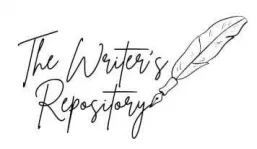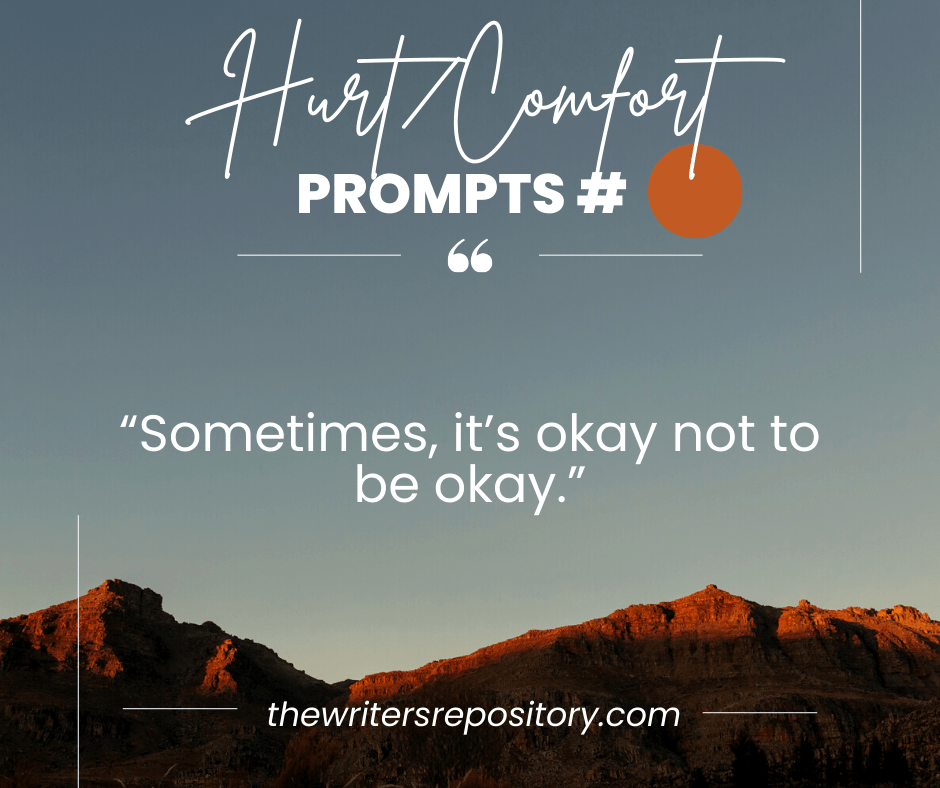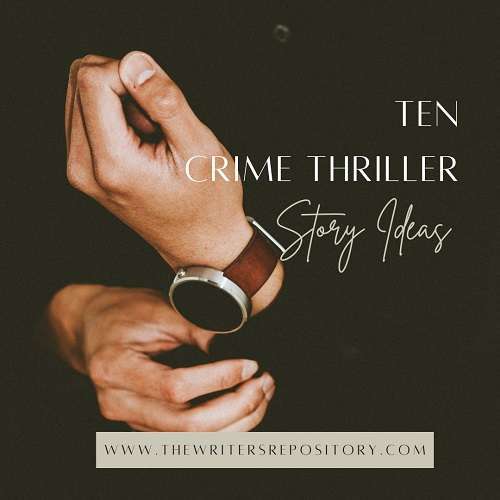Looking for some out of the box hurt comfort prompts? You’ve come to the right place!
Read on for prompts such as a character writing unsent letters, found by another character who offers comfort; a character coping with trauma through painting with the help of someone else; and a variety of poignant and casual dialogue prompts to inspire your writing!
Jump to Section
This post may contain affiliate links, which means that I may receive a commission, at no cost to you, if you make a purchase using these links.
Related posts:
Tragic Love Story Ideas We’re Rooting For (Updated in 2023)
Need Soft Angst OTP Writing Prompts in 2023? I’ve Got You Covered
40+ Sad Backstory Ideas for Your Character (2023)
Pregnancy Prompts for Your OTP from Cute to Angsty (2023)
Hurt/Comfort Prompts
Hurt/comfort writing prompts offer a rich tapestry for writers to explore the intricacies of human emotions, resilience, and the healing power of connection. Here are some ideas!
Hurt Comfort Scenarios
Remember to adapt these scenes to suit the context and characters in your story, and use them as a foundation for creating emotionally resonant moments.
- Hospital Vigil:
After a character undergoes a traumatic event, another character keeps a vigil by their hospital bedside. - Quiet Comfort:
One character, overwhelmed by grief or stress, finds solace in the quiet presence of another. It’s the power of silent support as they share a moment of understanding without words. - Mending Wounds:
A character tends to the physical or emotional wounds of another. Explore the tenderness and vulnerability that comes with the act of caring for someone in pain. - Reassuring Touch:
During a moment of distress, a comforting touch or embrace serves as a lifeline for a character in need. The highlight is on the impact of physical reassurance on emotional healing. - Late-Night Confessions:
Characters share their deepest fears and vulnerabilities during a late-night conversation. Explore the intimacy that comes with opening up and the connection forged through shared secrets. - Unexpected Support:
A character unexpectedly finds support from an unlikely source. Explore the dynamics of how this unexpected ally becomes a pillar of strength during challenging times. - Facing Nightmares:
After a character experiences a harrowing nightmare, another character provides comfort and reassurance. - Comfort Food:
Characters share a meal that holds emotional significance. Explore how the act of preparing and sharing food becomes a gesture of comfort and connection. - Rescuing the Rescuer:
The typically strong and resilient character faces their moment of vulnerability, and another character steps in to provide the support they need. Examine the role reversal and its impact on their relationship. - Shared Memories:
Characters revisit a shared memory that holds sentimental value. Explore the bittersweet emotions that arise as they reflect on the past and find comfort in each other’s company. - Weathering the Storm:
Characters endure a literal or metaphorical storm together. Explore how the shared experience of facing adversity strengthens their bond and provides a sense of security. - Comforting Rituals:
Characters engage in comforting rituals, whether it’s brewing tea, sitting by a fire, or stargazing. - Unexpected Reunion:
After years of separation, two estranged friends find themselves face to face again. Delve into the emotions and vulnerabilities that resurface as they navigate the complexities of their past. - Healing through Art:
With the help of another, a character turns to a creative outlet, such as painting, writing, or music, as a means of coping with trauma. - Lost and Found:
A character discovers and returns a lost item that holds sentimental value for another character. How does this rediscovery impact their emotional well-being, and what memories does it unlock? - Stranded Together:
Characters find themselves stranded or isolated in a challenging environment. Explore how they lean on each other for support, revealing vulnerabilities and strengths in the face of adversity. - Apology Accepted:
A character grapples with guilt over past actions and finds solace in the forgiveness of another character. - Facing the Phobia:
One character helps another confront a deep-seated fear. - Parallel Pain:
Two characters, each harboring their own pain, form an unlikely bond. Explore how their shared experiences or understanding of each other’s struggles bring them comfort and healing. - Letters Unsent:
A character writes unsent letters to express their deepest emotions. When another character stumbles upon these intimate missives, it sparks a journey toward mutual understanding and connection.
Dialogue Prompts
- “Sure, because everyone knows wounds heal better when you ignore them and pretend they’re not there. Classic medical advice.”
- “You can’t fool me. I can see the pain in your eyes.”
- “Dude, I get it. But seriously, let me slap a band-aid on that or something.”
- “I get it, you’re a DIY warrior. Let me know how that works out for you when infection decides to join the party.”
- “Crying doesn’t make you weak; it makes you human. Let it out; I’ll stay right here.”
- “I was going to offer patching you up, but if you’d rather walk around with a dramatic limp, who am I to stop you?”
- “You don’t have to be a superhero all the time, you know?”
- “You’re not a burden, and your feelings are valid. I want to understand. Talk to me.”
- “Even lone wolves need someone to patch ’em up. Can I just be your temporary sidekick nurse?”
- “Look, your wound doesn’t need to be a badge of honor. Let me help you out, okay?”
- “Sometimes, it’s okay not to be okay.”
- “I’m not saying you can’t handle it, but what if we tag-team this healing thing? You, me, and a first aid kit?”
- “Your vulnerability is your strength. I’m here to support you, no matter what.”
- “Alright tough guy, I see you wincing. Let me play doctor for a minute. I promise I won’t use a needle—unless you want me to, of course.”
- “Even superheroes need an Alfred. Let me be your Alfred, minus the British accent.”
- “You don’t have to wear a brave face. I’ll stand by you, even when things get tough.”
- “I know you’re the DIY type, but what if we DIY this healing process together? I got snacks and everything.”
- “Even the strongest need a moment to break. I’ll be here to help you rebuild.”
- “Look, I won’t make you wear a ‘Get Well Soon’ balloon, but can I at least fetch you some ice cream or something?”
- “I’m not trying to fix everything. I just want you to know you’re not alone. Can we face this together?”
- “You’re like a stubborn cat who got into a fight. Let me clean you up and make sure you’re back to being a sassy feline in no time.”
- “No need for a grand gesture, just a small one. How about you let me handle the antiseptic while you keep being the tough cookie you are?”
- Character A: “I don’t deserve your kindness.”
Character B: “Deserving has nothing to do with it. I care about you, and that’s enough for me.” - “Hey, I know you’re not into the whole care thing, but humor me? Let’s make healing look cool.”
- “Oh, I see, Mr. Invincible doesn’t need any help. The wound probably heals faster when you glare at it, right?”
- “No, please, continue to tough it out. Maybe if you flex hard enough, the wound will just seal itself shut. Magical healing powers, right?”
- “I guess hospitals are for quitters. Real warriors embrace wounds as battle scars. Or, you know, we could use some antiseptic and a bandage.”
- “Sure, we can go with the ‘let it fester’ approach. It’s not like we need functioning limbs or anything.”
How Do You Write Hurt/Comfort Trope?
“Hurt/comfort,” often abbreviated as “h/c,” is a genre or trope revolving around the emotional dynamics on one character (the “hurt” character) experiencing emotional or physical distress, and another character (the “comfort” character) providing solace, support, or care to alleviate the pain or distress.
Hurt/comfort trope often explores themes of vulnerability, resilience, friendship, and the healing power of human connection. Present in various genres (romance, drama, fantasy, etc), it’s used as a narrative device to deepen character development, explore emotions, and create a bond between characters, adding emotional depth to a story and a sense of catharsis for both the characters and the audience.
Hurt/comfort scenarios can arise in different contexts, such as after physical injuries, during times of grief, in the aftermath of traumatic events, or as characters confront personal demons.
Some prominent works with hurt/comfort trope include The Fault in Our Stars by John Green and the movie The Shape of Water (2017).
So, what kind of hurt/comfort story are you going to write today? Feel free to adapt the prompts above to fit the dynamics and context of your characters or use them as inspiration for scenes in your writing!
More?
If you need more story ideas and prompts, please browse our Story Ideas & Writing Prompts category!
Have any question or feedback? Feel free to contact me here. Until next time!



